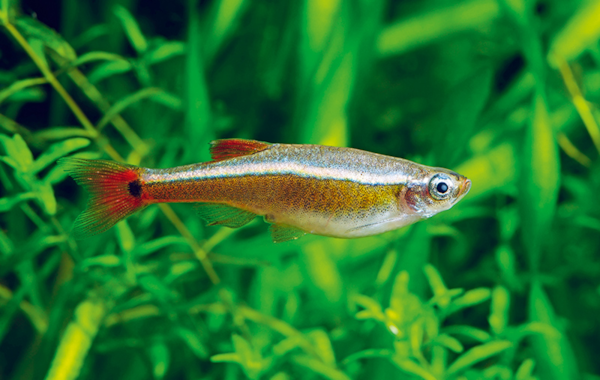The Lacey Act Amendment And Why You Should Care

Image via Practical Fishkeeping
March 14, 2022
The American Competes Act is a 3610-page long bill that mainly addresses the guidelines and funding of research such as energy production, biotechnology, and neutron scattering. Inside these 3610 pages is a small section called SEC. 71102. It is an amendment to the Lacey Act, which is an act that prevents the sale of endangered plants and animals, making it irrelevant to the rest of the bill. This amendment, if passed, changes our current blacklist, which is a list of prohibited creatures, into a white list of animals that are allowed to come into the country and travel throughout it. A white list is when you are only legally allowed to get animals on the list. There are two goals of this approach. One is to prevent invasive species, and the other is to protect animals that are in danger of going extinct. You might be thinking that this sounds reasonable and like something that we should do. The main problem with this bill is it doesn’t protect the animals that are in danger of going extinct. It makes fish less valuable to the people who live near the rivers fish are native to. When the fish lose their value, the people no longer have the incentive to keep their rivers clean, even if it is the law. Instead, they turn to more lucrative yet harmful methods of making money, such as mining for gold and converting their land into farmland, where they do slash and burn farming.
Mining for gold, even though it’s illegal in these areas due to the harm it causes the environment, is one of the more prominent substitutions that people will turn to when they are no longer making money off of protecting their native fish. Mining for gold stirs up the dirt and silt that had previously settled on the bottom of the river. Silt is now circulating throughout the water, making it harder for the fish and other aquatic creatures to breathe. While illegally mining for gold, they also use toxic chemicals. Those chemicals poison the fish, plants, and other aquatic life, making the situation worse than when the fish were valuable.
If chemicals put directly in the water by people isn’t bad enough, they will also poison the river indirectly because they turn to slash and burn farming. When the plants are cut and burnt, the roots of those plants are no longer holding the dirt together, leading to erosion. When using this method of farming, the entire ecosystem is harmed. Lizards, rodents, birds, and insects all lose their homes when the lands they live on are converted into slash and burn fields.
It is because of the actions of humans that the environment is being hurt, but the actions of humans have also saved the environment. We have saved species like the white cloud minnow from extinction through the pet trade. They were believed to be extinct in the wild due to loss of habitat. It was a popular fish in the pet trade, so fishkeepers bred it and prevented it from going completely extinct. If there had been a white list in place, the white cloud minnow likely would have been kept off of it because it was an endangered species. That would have made the minnow go extinct because their habitat had been so polluted that they died off almost completely. Recently, there have been a few strands of white cloud minnows discovered in parts of China. This proves that animals are sometimes more resilient than we think, but the pet trade has kept these fish thriving in numbers and health.
Saving our environment is very important, but making changes to laws like the Lacey Act often has the power to do more harm than good if not given separate time and consideration from irrelevant laws, as was the case with The American Competes Act. To be honest, I don’t know the best way to protect the ecosystems and nature, but I know that white lists are not the solution we should use. Contacting your representatives and encouraging them to reject the lumping of irrelevant laws and bills is the best way for you to create change. The rest of the Competes Act might be reasonable, but is harming the environment in the name of the greater good worth it?




























































































































